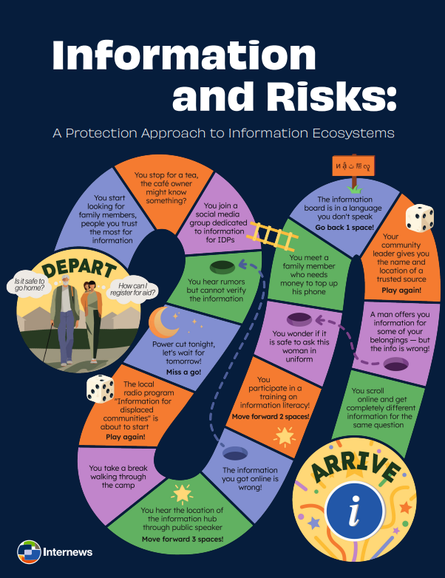
Individuals are constantly making decisions about the risks and benefits of accessing services, and access to information is no different. People affected by crises need to have safe and meaningful access to accurate information to know and exercise their rights and entitlements and participate in decisions that affect them.
As a result of denial of access to information, communities affected by crisis can be deprived of services and foster negative coping mechanisms. This can exacerbate other protection risks including gender-based violence, discrimination, trafficking in persons, or restriction of movements. Despite the recognition of the centrality of information needs for people affected by crises, the lack of a common, systematic, and structured approach among humanitarian actors and other information actors results in information gaps or practices that create or exacerbate protection risks for the affected communities, humanitarian workers, and other information providers.
